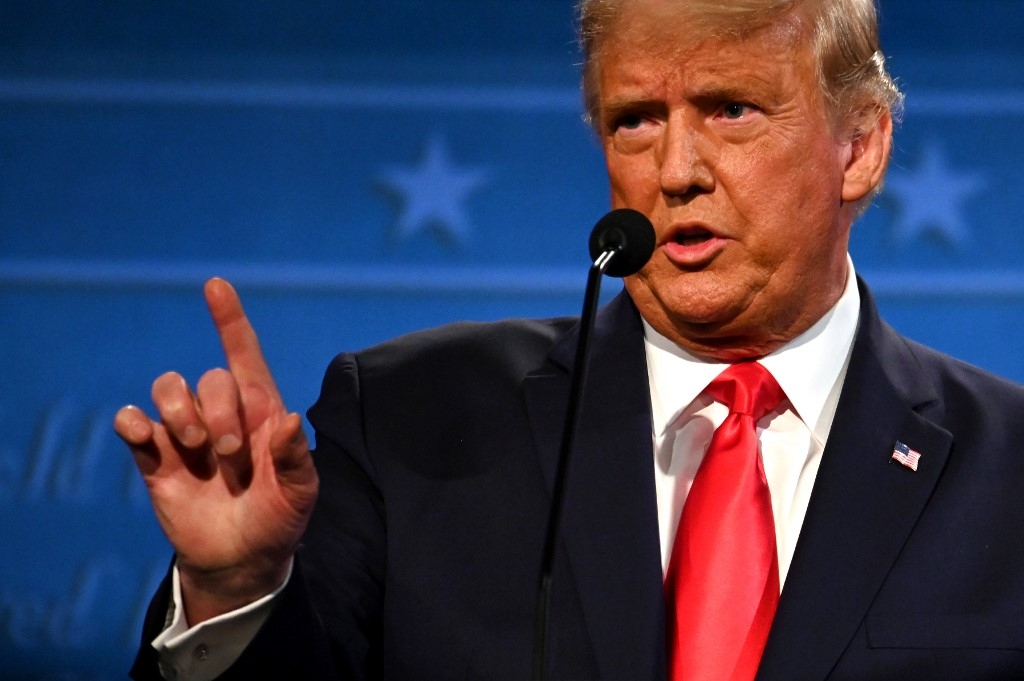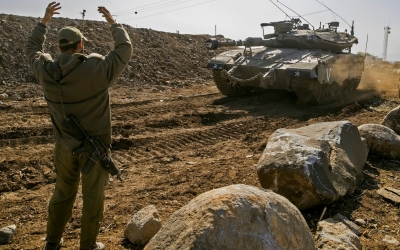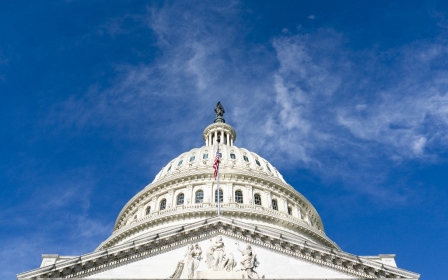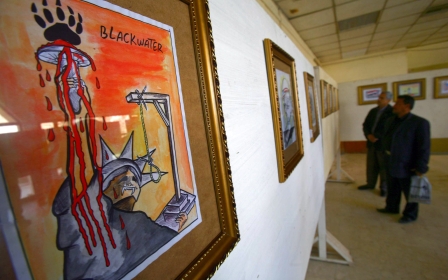Trump slams Washington's $1.3bn military aid to Egypt

US President Donald Trump criticised a piece of legislation approved by Congress that lumps Covid-19 relief aid along with the entirety of the government's spending for the upcoming year, and accused Egypt of planning to use American aid to purchase Russian military equipment.
In a pre-recorded video posted on Twitter late on Tuesday, Trump rejected the bill approved by both the House of Representatives and the Senate, which contains $900bn for coronavirus aid relief, including $600 in direct payments to Americans.
The legislation is an omnibus spending bill, covering all government spending including Pentagon funds and Covid-19 relief, though the two are not related.
"This bill contains $85.5 million for assistance to Cambodia, $134 million to Burma, $1.3 billion for Egypt and the Egyptian military which will go out and buy, almost exclusively, Russian military equipment," Trump said.
"Congress found plenty of money for foreign countries, lobbyists, and special interests while sending the bare minimum to the American people who need it."
Trump, who has approved and signed spending bills with similar amounts of foreign aid to these countries over the past three years, rejected the bill on the pretext that the money should be spent on Americans who are suffering.
He called the legislation a "disgrace", urging for an increase to the stimulus amount from $600 per person to $2,000 for each individual and $4,000 for couples.
The US passed its first economic stimulus bill amid the coronavirus pandemic in March, delivering $1,200 to each individual, along with small-business relief and an increase in unemployment benefits.
Still, while unemployment rates have gone down since then, many Americans continue to suffer from the economic toll of the pandemic.
A Pew poll in September found that a quarter of Americans are struggling with paying basic monthly expenses, and "one-in-six have borrowed money from friends or family or gotten food from a food bank".
Trump's statement prompted a response from House Speaker Nancy Pelosi, who said Democrats could bring a new bill to the floor of Congress this week that includes $2,000 payments.
Egypt, Russia and CAATSA
The US has given Egypt more than $83bn in foreign aid since 1946, making it the second-largest recipient of American military assistance behind Israel, according to a Congressional research service report.
Since 2013, when Egypt's now-president, Abdel Fattah el-Sisi, overthrew the first democratically elected president, Mohamed Morsi, in a military coup, some US lawmakers have questioned whether Cairo is deserving of the assistance.
Calls to impose conditions on or leverage this military assistance have grown over Cairo's crackdown on civil society, including the jailing of activists, journalists, and human rights advocates.
Sisi's government has also attracted the ire of many US lawmakers over a deal it struck to purchase Russian Su-25 fighter jets, which could trigger sanctions under the Countering American Adversaries Through Sanctions Act (CAATSA).
Still, despite Trump's criticism of aid to Egypt, the president made no mention of Israel, the largest recipient of US military aid each year.
Contained inside the spending bill, is an allotment of $3.3bn in military assistance to Israel, with an additional $500m for Israeli cooperative programmes, a Pentagon-funded initiative to bolster Israel's missile defence systems' capabilities.
Middle East Eye delivers independent and unrivalled coverage and analysis of the Middle East, North Africa and beyond. To learn more about republishing this content and the associated fees, please fill out this form. More about MEE can be found here.






